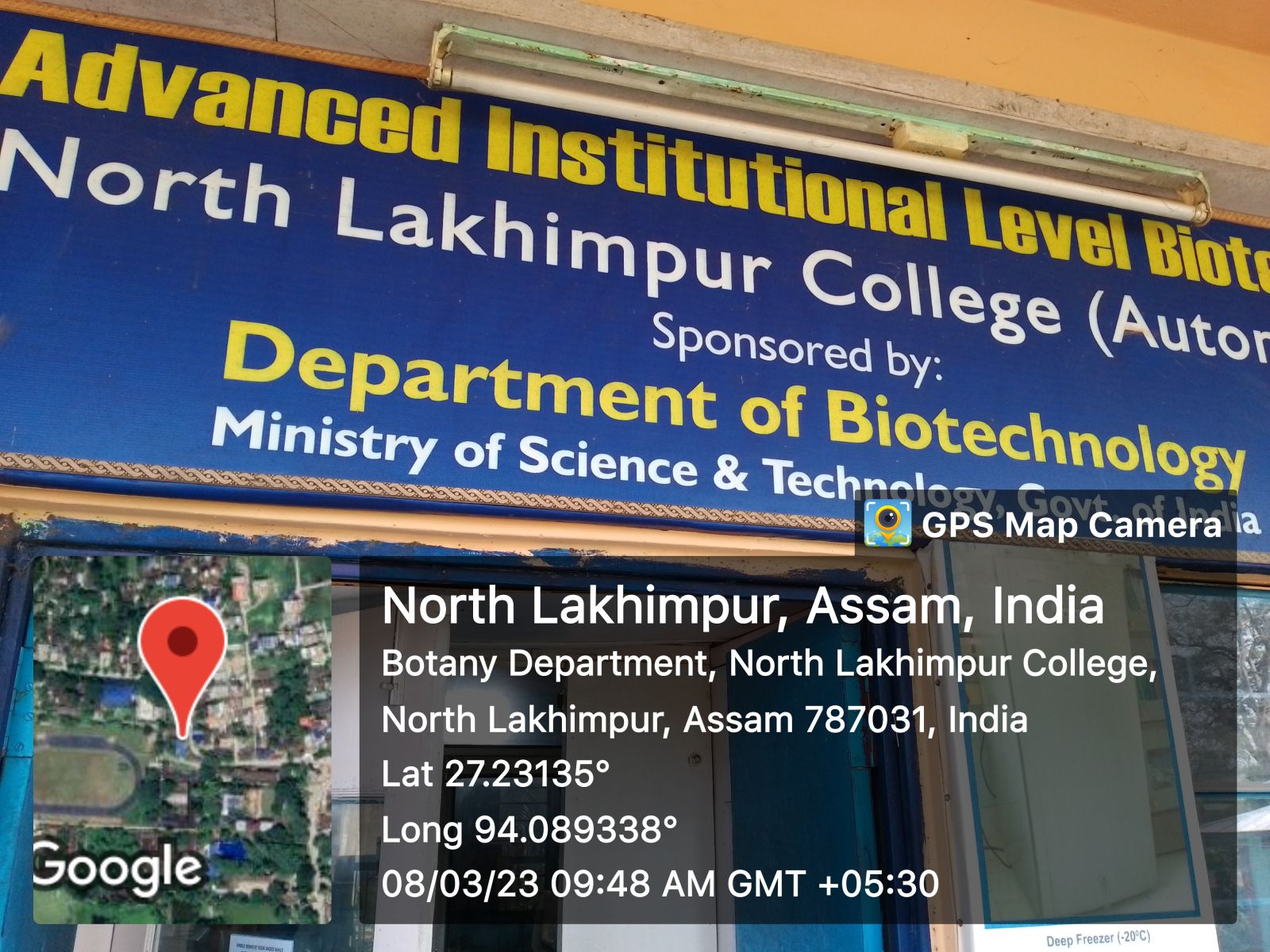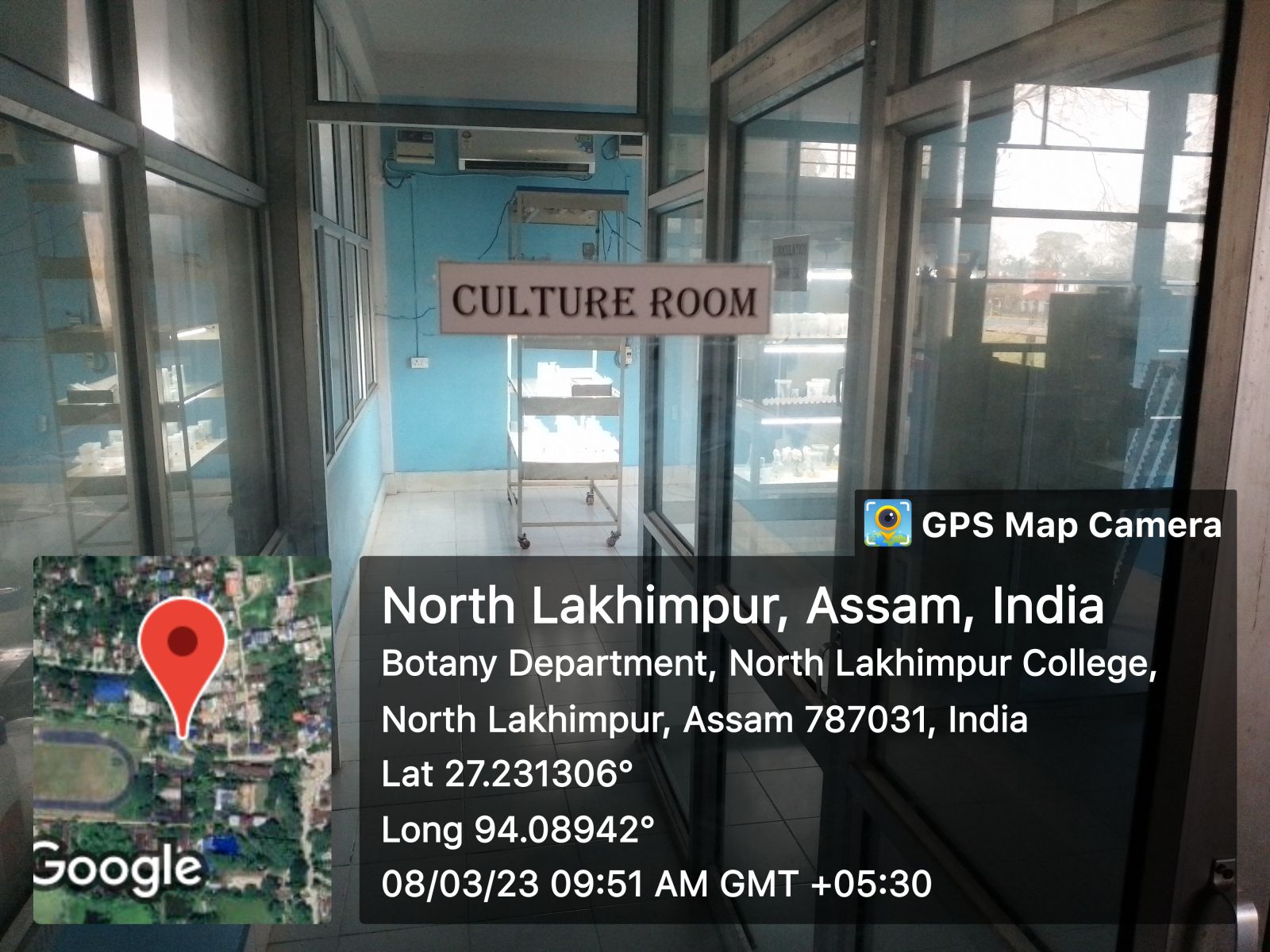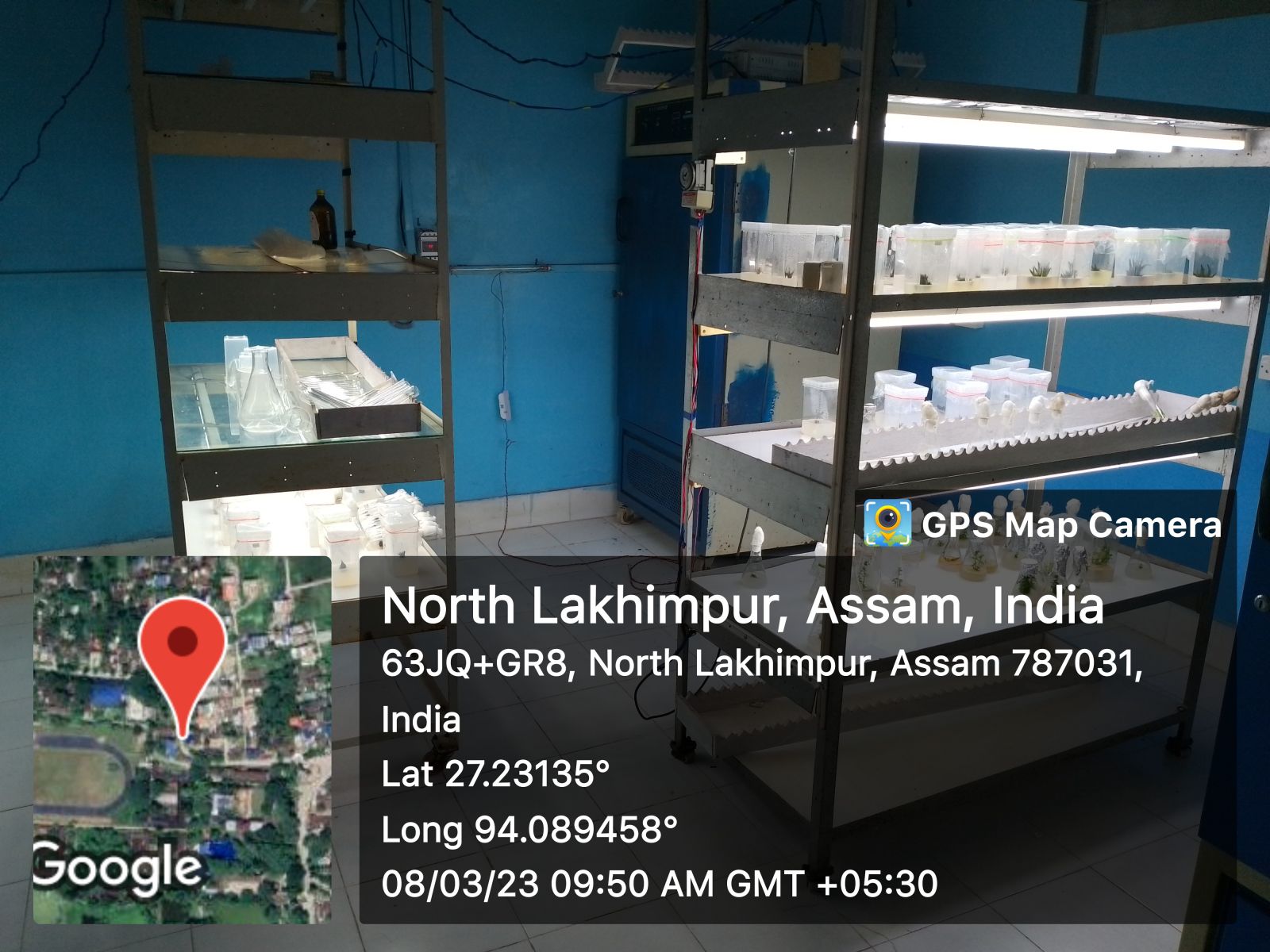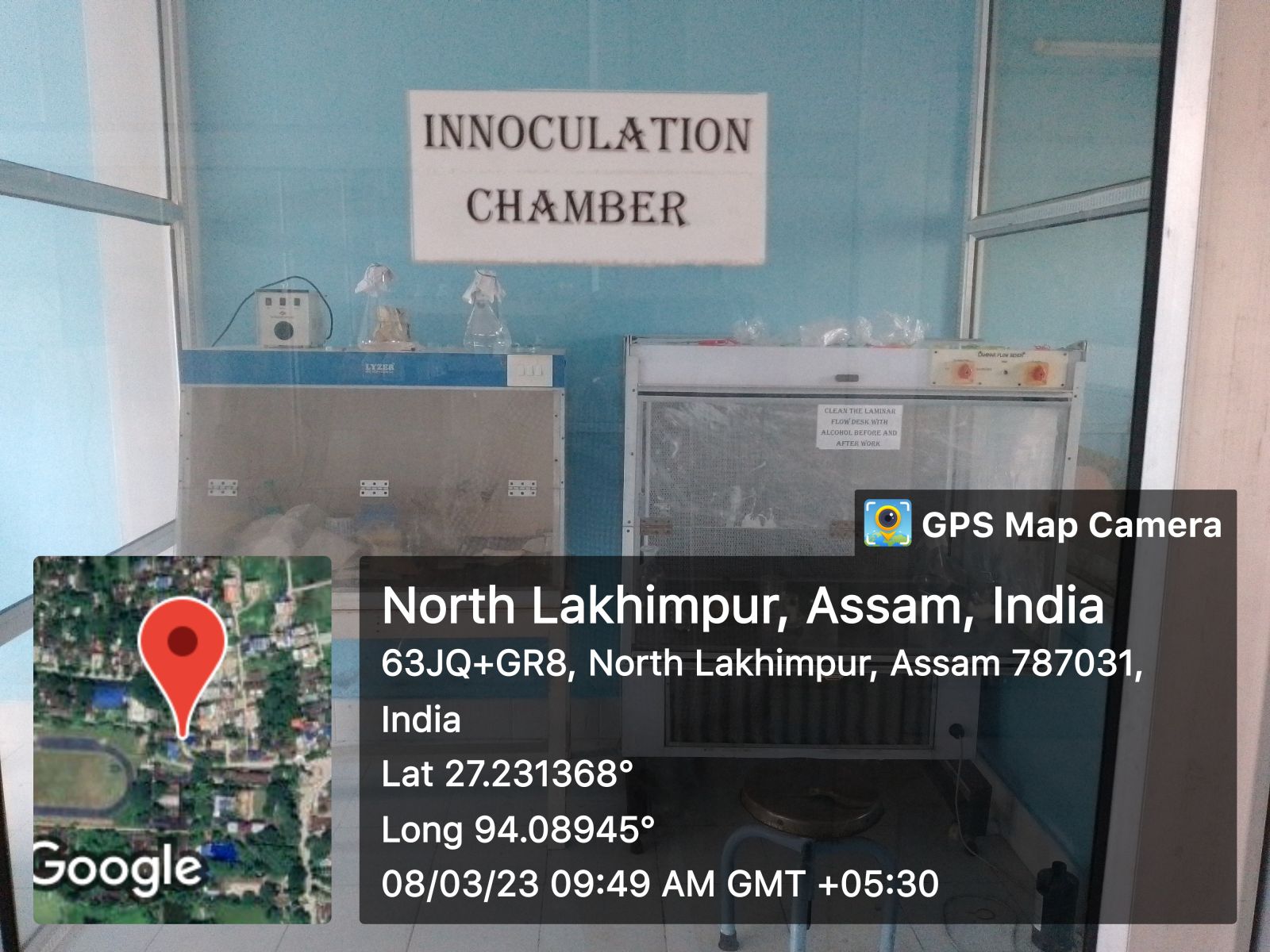INSTITUTIONAL LEVEL BIOTECH HUB
North Lakhimpur College (Autonomous), Assam
Sponsored by:
Department of Biotechnology
Ministry of Science & Technology, Govt. of India
 |
 |
 |
 |
Institutional Level Biotech Hub was established at North Lakhimpur College, Assam during the session 2011-12 with the financial assistance received from the Department of Biotechnology, Ministry of Science & Technology, Govt. of India under NER-BPMC.
The major objectives of establishing the Institutional Level Biotech Hub at North Lakhimpur College are to provide basic laboratory facilities with necessary equipments to carry on biotechnological research for the benefit of all the stakeholders and also to bring awareness in Biotechnology.
Establishment of the DBT sponsored Institutional Level Biotech Hub at North Lakhimpur College in 2011 has helped the college to provide-
Major achievements of the Biotech Hub:
The hub is well equipped for carrying out research both on Plant Biotechnology and Molecular Biology. The following are the Major achievements of the Biotech Hub:
a) MAPs have been isolated from Paederia foetida (vedai lota) and Ocimum sanctum (Tulshi) by phytochemical extreation.
b) Antimicrobial and antioxidant activity studies of MAPs isolated from Paederia foetida (vedai lota) revealed inhibition of plant diseases caused by Xanthomonas citri (citrus canker disease) in Citrus lemon.
c) Antimicrobial and antioxidant activity studies of MAPs collected from Ocimum sanctum (Tulshi) revealed inhibition of plant diseases caused by Colletotrichum falcutum (red rot disease in sugarcane).
d) Phytoremediation of hydrocarbon and heavy metals contaminated soil using Dolomiaea costus (Costus plant).
e) Study of ground water quality of certain districts of Upper Assam, India and their effects on human health.
f) Plant regeneration by somatic embryogenesis in Azadirachta indica (Neem).
g) In vitro micropropagation of Aloe vera, Brahmi, Orchids and Banana.
h) Phytochemical Screening and GC-MS Analysis of Methanolic leaf Extract of an Endemic Plant K. assamica.
i) GC-MS Analysis of Bioactive Compounds Present in Methanol Extract of Fruit of an Endemic Plant Kayea assamica.
j) Identification of medicinally important bioactive compounds present in fruit of endemic plant K. assamica for the conservation and sustainable use of the plant species.
k) Hepato-Protective Effect of Aqueous Extract of Seed, Leaf and Fruit of Jackfruit (Artocarpus heterophyllus Lam.) Against CCl4 Induced Hepatotoxicity on Swiss Albino Mice.
l) In vitro germination of Bhut jolokiya from khashi Hills, Meghalaya.
m) Training of UG, PG students and research scholars on handling modern sophisticated instruments and equipment in the domain Biotechnology research.
Future activities and proposed action plan:
a) To continue research activities on quantification and identification of active biomolecules isolated from Paederia foetida (vedai lota) and Ocimum sanctum (Tulshi) that inhibit the growth Xanthomonas citri (citrus canker disease) in Citrus lemon and Colletotrichum falcutum (red rot disease in sugarcane).
b) To study enzymatic degradation of certain hydrocarbons and heavy metals by Dolomiaea costus.
c) To study health complications resulting from certain heavy metals present in ground water.
d) To continue research activities (tissue culture & Micropropagation) on certain orchid plants.
e) Small scale Mushroom cultivation.
f) To continue research activities (tissue culture & Micropropagation) on medicinal plants.
g) In vitro seed germination of other species of Orchids, Bhut Jalakiya, and Citrus sinensis.
h) Isolation of endophytes from flower, leaf and root of K. assamica and their chemical and molecular characterization.
i) Effect of endophytic fungal metabolite in different bioassay (Antimicrobial, anti-larval).
j) A stepwise scientific work on the endemic medicinal plant K. assamica for its conservation and sustainable use in therapeutic medicine.
k) To provide UG students in Botany and zoology with exposure to the tools and techniques of Molecular Biology Techniques.
l) Organization of Workshop and Training, Outreach & Awareness Program related to Molecular Biology and Biotechnology.
m) To provide technical and infrastructure facility support to the faculty members and others.
n) Capacity building of biology teachers/students of schools/college levels covering the institutes.
o) Conducting Awareness/ outreach program in the region targeting school level students and teachers.
p) To encourage more students to take biotechnology based project at under graduate level.
Papers published/Presented:
List of Equipments of Bio-Tech Hub
Co-ordinator: Dr. Buddhadev Basumatary
Assistant Professor
Department of Botany
North Lakhimpur College (Autonomous)
Contact No: 9954847844